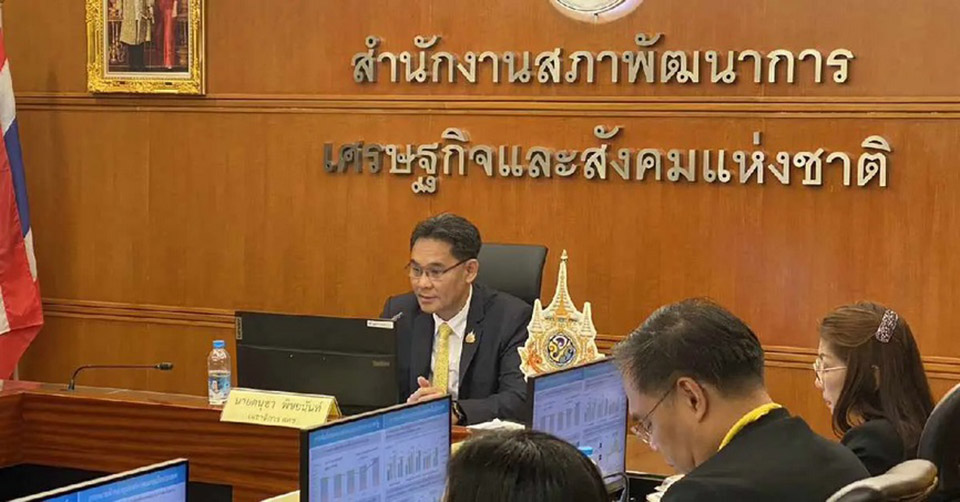
BANGKOK, Thailand – The National Economic and Social Development Council (NESDC) on November 18 has reported a 3% growth in Thailand’s GDP for the third quarter of 2024, an increase from 2.2% in Q2. This brings the growth for the first nine months of the year to 2.3%. The NESDC attributes this improvement to several factors, including a 3.4% rise in private consumption, a 5.2% increase in overall investment, and a notable 8.9% increase in exports.
The government’s accelerated public spending, particularly in infrastructure projects, contributed to a 25.9% rise in public investment. Additionally, the construction sector grew 5.5%, driven by industrial park developments and electronic component production, while the automotive and motorcycle sectors showed slower growth.
Thailand’s unemployment rate stands at 1.02%, and the country’s foreign exchange reserves are at $243 billion USD. Public debt is currently 63.6% of GDP. As a result, the NESDC has revised its full-year GDP growth forecast for 2024 to 2.6%, up from the previous estimate of 1.9%. Inflation is expected to remain low at 0.5%, while the current account surplus is projected to be 2.5% of GDP.
Outlook for 2025: Continued Growth Despite Risks
For 2025, Thailand’s GDP is forecasted to grow between 2.3% and 3.3%, with the median estimate at 2.8%. This growth is expected to come from a 3% increase in consumption, a 2.8% rise in private investment, and a 2.6% growth in exports, following a 3.8% increase in 2024. Inflation is projected to remain low, between 0.3% and 1.3%.
However, several risk factors are looming, particularly from potential economic policies under former U.S. President Donald Trump. There are concerns that new tariffs on Chinese and other international imports could significantly impact Thailand’s economy. Additionally, the influx of cheap Chinese goods could harm small and medium-sized enterprises (SMEs) in Thailand, compounding existing challenges such as high household debt levels.
Government Measures and the Focus on Private Investment
The government has emphasized the need to accelerate private investment, particularly through projects supported by the Board of Investment (BOI) from 2022 to 2024. It also plans to bolster agricultural exports, support SMEs in accessing liquidity, and address challenges in the agricultural sector. Additionally, social welfare measures for vulnerable groups, including the elderly, are expected in late 2024.
The Ministry of Finance is working on digital financial assistance for vulnerable groups, with a digital cash transfer of 10,000 baht scheduled for 2025, though its timing will depend on economic conditions and risks. The government plans to target its economic stimulus more effectively, with further discussions required on the details of these measures.
The NESDC’s outlook remains cautiously optimistic, with the focus on sustainable growth and mitigating risks from both internal and external factors. (TNA)








